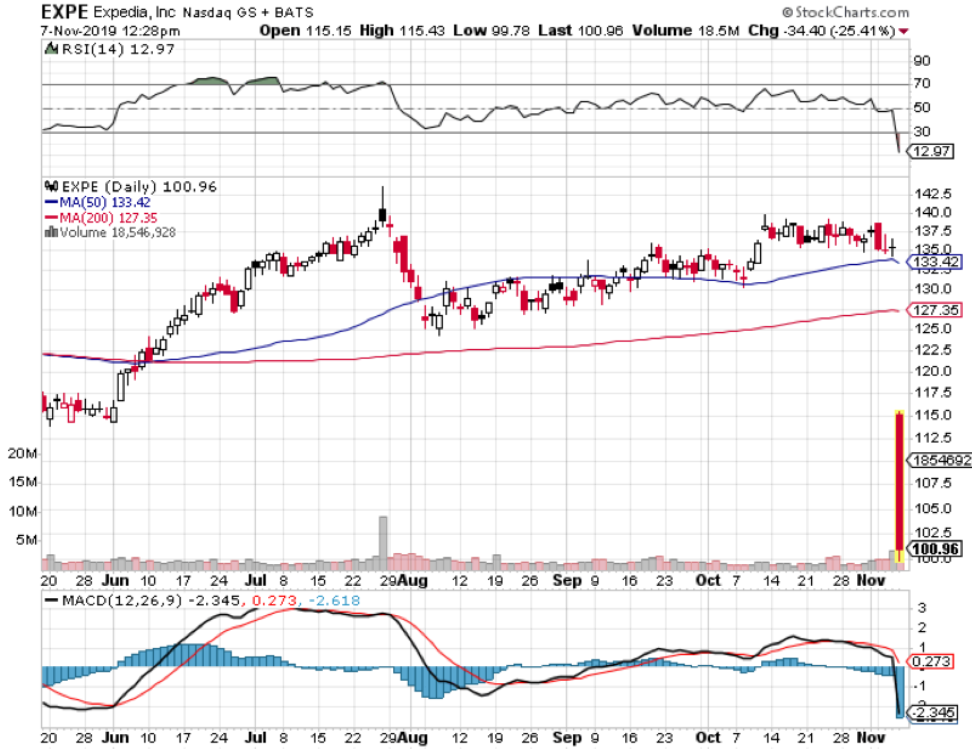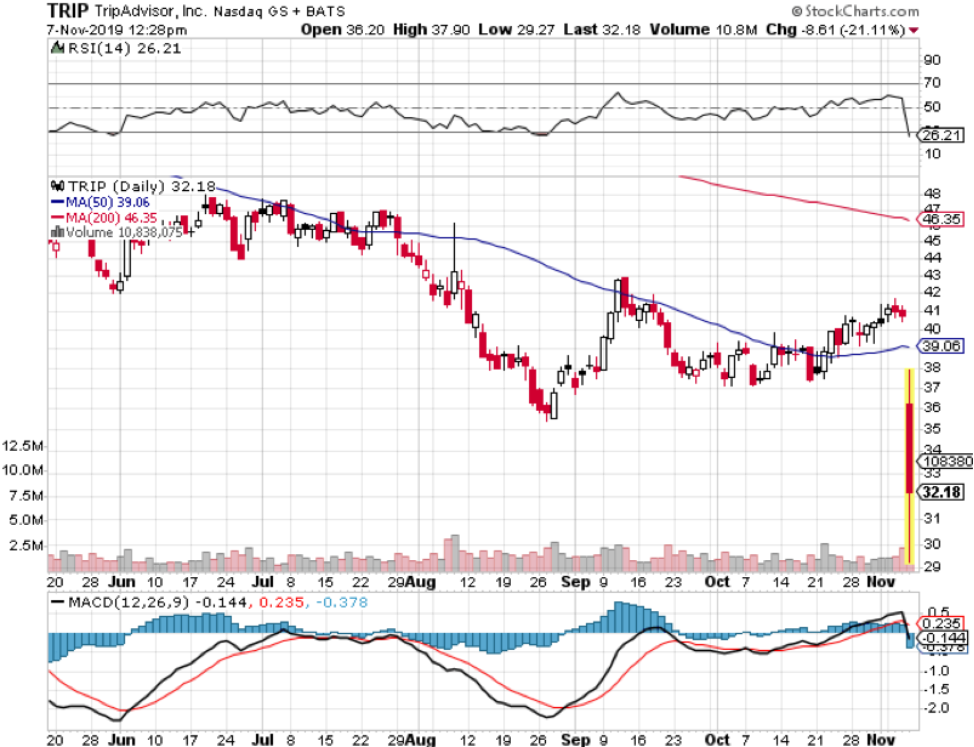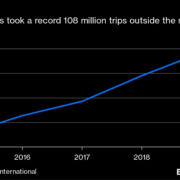Wanderlust Takes a Hit
I have slaughtered travel tech nonstop for quite a while now and today is the day that the bearishness turned ugly.
Let’s take a look at why.
I believe travel tech is a vulnerable group waiting to be taken to the emergency room.
We are approaching the dying embers of the economic bull cycle for better or worse, mostly the latter.
Europe is already mired in a recessionary-like environment and hiring has ground to a halt.
When German automobile manufacturers aren’t doing well, usually the rest of the continent follows suit.
No new jobs mean no new money to travel with and austerity usually whacks off luxuries like hotel stays and cross border travel.
Reading the tea leaves, it’s hard not to think that travel tech could be in for a rough next year with revenue growth sliding like Expedia’s vacation rental business in the third quarter.
The company is signaling slowed momentum in its high growth category leading to a lowered profit forecast for 2020.
The short-term rental unit reported revenue growth of 14% to $467 million, lower than the 17% rate in the previous period and missed analysts’ estimates of $462.4 million.
Total revenue grew 8.6% to $3.56 billion, in line with consensus but as we turn the page, there’s not much to like.
Expedia attempts to juice up home-sharing division, VRBO, in a quest to unseat rivals Airbnb Inc. and Booking Holdings Inc. in the booming home-share market will fall flat.
While VRBO is strong in the U.S. for purely vacation rentals, Airbnb and Booking capture a much larger share of the broader global $34 billion alternative accommodation market, which also includes non-traditional hotels and home-sharing.
Expedia is now set for 2020 adjusted Ebitda growth of 5% to 9%, down from a previous forecast of 15% growth.
VRBO only pulls in just over 10% of Expedia’s overall revenue, but its growth prospects revolve around this one asset.
To reach its targets, Expedia will need a greater dependence on higher-cost marketing channels in a secular flat hotel ADR (average daily rate) environment while grappling with the uncertainty around VRBO weathering a change in brand name.
Many tech companies are finding out that now is the wrong time to champion growth at any costs and travel tech is grossly reliant on exorbitant marketing costs to drive incremental home-sharing revenue.
I can’t say what TripAdvisor (TRIP) is doing is much better than Expedia because it is certainly not.
They have just announced a joint venture and global licensing agreement with China’s Trip.com Group which includes assets Ctrip, Trip.com, Qunar, and Skyscanner.
This is probably the worst time in the past 30 years for an online travel company to dive straight into China.
As I read through the detail, there was one red flag that stood out and that was the bit about “sharing inventory.”
I am doubtful that TripAdvisor is able to have an enforceable mechanism for misbehavior.
For example, if a hotel booked through TripAdvisor China is rerouted into the Trip.com portfolio and executed by the Chinese mainland array of digital assets, how would TripAdvisor respond?
There are too many lurking risks that could easily result in Trip.com Group gaming this agreement to tilt the benefits in their favor.
A cynical part of me tells me that this is just a ruse for Trip.com Group to use TripAdvisor’s brand name which dominates in western developed countries to siphon away foreign tourism revenue.
On a personal level, I have found that Trip.com Group has subsidized its prices which is a boon to consumers but is a way to undercut and pervert competition.
TripAdvisor can’t operate freely in China as it stands, but I wouldn’t desperately decide on a joint venture just to get a shoe in the door.
Better off looking elsewhere or keeping their ammunition dry.
Whether its weakness in VRBO in Expedia or a poor licensing agreement between TripAdvisor and China’s Trip.com Group, there is a lack of good ideas since Airbnb created this industry out of thin air.
Probably better to wait for Airbnb to go public if you want to get into travel tech, they have revolutionized the industry and are profitable or invest in Google who is stealing market share from the old guard.
The higher competition will certainly lead to higher marketing costs, lower growth, and a race to zero commissions.




